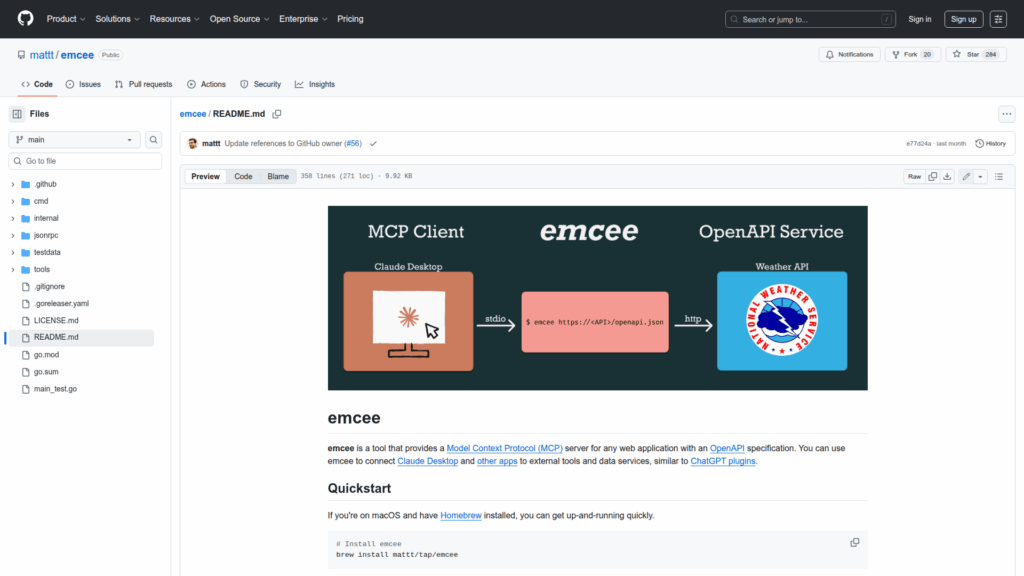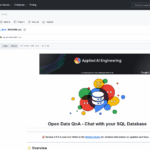Basic Information
emcee is a command-line tool that runs a Model Context Protocol (MCP) server for any web application that exposes an OpenAPI specification. It is designed to convert OpenAPI-described endpoints into MCP "tools" so model clients such as Claude Desktop and other MCP-aware apps can discover and call those endpoints as external tools. emcee communicates using the stdio transport and JSON-RPC 2.0, accepting a local file path or URL to an OpenAPI spec and exposing tool discovery and invocation methods. The project provides installers and packaging for common platforms, Docker images, and instructions to build from source with Go. It targets developers and operators who want to make existing APIs directly available to LLM-driven assistants without writing a custom MCP server implementation.








